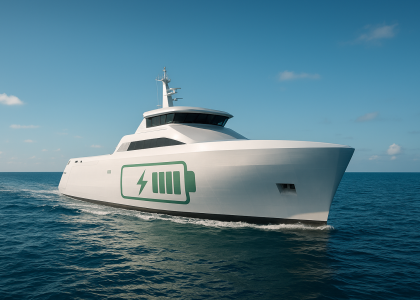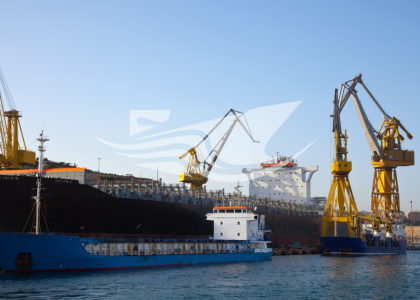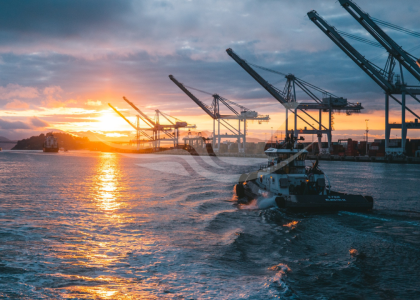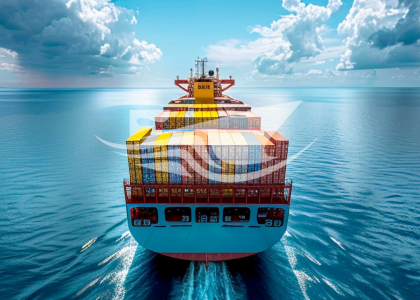In recent decades, the maritime industry has witnessed significant technological transformations, and one of the most pivotal developments is the application of advanced composites in vessel construction. These materials—lightweight, strong, corrosion-resistant, and flexible in design—are revolutionizing how modern ships are built, maintained, and operated (image by: freepik).
As shipping companies and naval architects aim to enhance performance, sustainability, and cost-efficiency, advanced composites offer a powerful alternative to traditional steel and aluminum hulls. PT. Lentera Segara Indonesia, as a leader in maritime design and supervision, is at the forefront of this innovation—offering strategic consultation and engineering solutions for the modern maritime world.
Why Advanced Composites Are Changing the Game
Advanced composites, such as glass fiber-reinforced plastics (GFRP), carbon fiber, and aramid-reinforced polymers, provide substantial benefits in shipbuilding:
- Weight Reduction: Composite materials are significantly lighter than steel or aluminum, often reducing vessel weight by 20–40%. This leads to improved fuel efficiency, faster speeds, and increased payload capacity.
- Corrosion Resistance: Unlike metals, composites do not rust. This dramatically reduces maintenance needs, repair costs, and dry-docking frequency—extending the service life of the vessel.
- Structural Strength & Flexibility: Despite being lightweight, composites exhibit high tensile strength and excellent fatigue resistance. This combination allows for innovative hull shapes, better hydrodynamics, and longer operational lifespans.
- Design Versatility: Composites can be molded into complex forms that are difficult or expensive to fabricate using traditional materials, enabling more aerodynamic designs that reduce drag and improve performance.
Core Innovations in Vessel Construction
1. Vessel Construction
The use of composites in primary and secondary vessel structures—including hulls, decks, superstructures, and internal panels—has resulted in ships that are lighter and more energy-efficient. In small- to mid-size vessels like patrol boats, ferries, and leisure craft, composites have become a preferred standard. Even in large-scale vessels, hybrid approaches (composite + metal) are gaining traction.
PT. Lentera Segara Indonesia applies composite solutions across multiple vessel types, ensuring compliance with international maritime safety standards while maximizing design performance.
2. Ship Materials & Hydrodynamics
One of the critical concerns in vessel design is reducing hydrodynamic drag to improve fuel efficiency. Composite materials enable smoother, more contoured hull designs that reduce water resistance. Combined with Computational Fluid Dynamics (CFD) simulations and real-world testing, composite hulls offer measurable advantages in speed, efficiency, and maneuverability.
Moreover, composite materials dampen vibrations and noise better than metals, enhancing both crew comfort and equipment reliability.
3. Lightweight Structures
The ability to build lighter vessels without sacrificing structural integrity is a key advantage. In high-speed vessels or those operating in sensitive ecological zones, reducing wake, emissions, and energy consumption is crucial. Composites deliver on all these fronts.
Their lightness also contributes to easier transportation and assembly—especially valuable in modular ship construction and remote-location shipbuilding.
Environmental Impact and Sustainability
The marine industry faces growing pressure to reduce carbon footprints and meet IMO decarbonization targets. Using advanced composites aligns well with global efforts toward green shipping.
- Lower Fuel Consumption: Less weight means less fuel, directly reducing greenhouse gas emissions.
- Longer Life Span: Durable materials mean vessels don’t need to be replaced as often, reducing material and energy usage over time.
- Fewer Toxic Coatings: Composites are inherently corrosion-resistant, reducing the need for toxic paints and anti-fouling chemicals.
While composites currently have challenges in terms of end-of-life recycling, ongoing research is developing bio-composites and recyclable polymer solutions, opening the door to a fully circular economy in maritime construction.
Real-World Applications
Across the globe, composite ships are being successfully deployed in both civilian and military operations. Examples include:
- Coast Guard & Patrol Vessels: Fast, lightweight, and durable for rapid deployment.
- Passenger Ferries: Improved comfort, reduced vibrations, and enhanced efficiency.
- Tugboats & Barges: Composite elements are increasingly used in modular superstructures.
- Luxury Yachts: Aesthetic flexibility and reduced maintenance make composites ideal for high-end vessels.
PT. Lentera Segara Indonesia has contributed to several such projects by offering detailed design blueprints, structural analysis, and on-site supervision using advanced composite methodologies.
Our Expertise at PT. Lentera Segara Indonesia
Our team combines practical shipyard experience with a deep understanding of material science and naval architecture. Whether you are constructing a brand-new vessel or refitting an existing one, we provide full-cycle support:
- Feasibility Studies & Material Selection
- Design Integration & 3D Modeling
- Regulatory Compliance & Safety Assessments
- Construction Supervision & Quality Control
- Lifecycle Planning & Maintenance Optimization
From the early design stages to final delivery, we ensure your vessel meets the highest standards in performance, safety, and sustainability.
Partner With Us for Your Next Composite Vessel Project
At PT. Lentera Segara Indonesia, we believe that the future of maritime lies in innovation—and advanced composites are a key part of that future. Whether you’re building patrol boats, ferries, commercial workboats, or specialized offshore units, our design solutions are tailored to deliver operational excellence and long-term value.
Innovate with strength and durability. Explore advanced material solutions for your vessel construction with us. Unlock the potential of composite materials. Get expert consultation on modern shipbuilding techniques.







